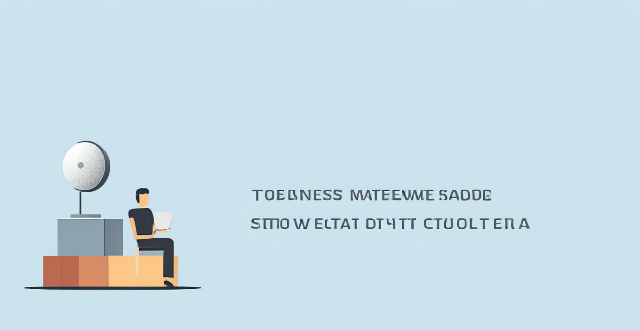The text discusses how mobile communication technology can improve healthcare services in various ways such as telehealth and remote monitoring, electronic health records management, medical education and training, administrative efficiency, and public health surveillance. The use of virtual consultations, remote patient monitoring, centralized data storage, online learning platforms, automated appointment scheduling, disease tracking, and vaccine management are some examples provided. The conclusion states that these technologies will play a vital role in shaping the future of healthcare delivery.

How Can Mobile Communication Technology Be Used to Improve Healthcare Services?
Mobile communication technology has revolutionized the way we live, work, and interact with each other. In the healthcare sector, it has opened up new avenues for improving patient care, enhancing medical research, and streamlining administrative tasks. Let's explore some ways in which mobile communication technology can be leveraged to improve healthcare services:
Telehealth and Remote Monitoring
- Virtual Consultations: Doctors can consult with patients remotely via video calls or instant messaging, reducing the need for physical visits and saving time for both parties.
- Remote Patient Monitoring: Wearable devices and smartphone apps can track vital signs and symptoms, allowing doctors to monitor patients' health in real-time without being physically present.
- Prescription Delivery: Patients can receive prescriptions electronically and have medications delivered to their doorstep, minimizing contact with others during infectious disease outbreaks.
Electronic Health Records (EHR) Management
- Centralized Data Storage: EHRs can be stored securely in cloud servers, ensuring easy access and seamless sharing among healthcare professionals.
- Data Analytics: Advanced algorithms can analyze EHR data to identify patterns, predict outcomes, and personalize treatment plans.
- Patient Portals: Patients can access their own health records, book appointments, and communicate with their healthcare team through secure online portals.
Medical Education and Training
- Online Learning Platforms: Healthcare professionals can access educational resources and training modules from anywhere, at any time.
- Virtual Reality Simulations: VR technology can provide realistic surgical simulations and clinical scenarios for hands-on practice without risking patient safety.
- Continuing Medical Education (CME): Mobile apps can deliver CME courses directly to healthcare professionals' devices, making it easier to stay up-to-date on the latest developments in medicine.
Administrative Efficiency
- Appointment Scheduling: Automated systems can handle appointment scheduling, reminder notifications, and cancellations, freeing up administrative staff to focus on more complex tasks.
- Invoice Management: Billing processes can be automated, reducing paperwork and human error while increasing efficiency.
- Supply Chain Management: Mobile solutions can track inventory levels, automate reordering processes, and ensure that essential supplies are always available.
Public Health Surveillance
- Disease Tracking: Mobile apps can collect data on infectious diseases, helping public health officials monitor outbreaks and respond quickly.
- Health Promotion Campaigns: Text messages and social media platforms can disseminate health information rapidly, raising awareness about preventive measures and healthy lifestyle choices.
- Vaccine Management: Mobile technology can aid in vaccine distribution tracking, appointment scheduling, and record-keeping, especially crucial during mass vaccination campaigns.
Conclusion
Mobile communication technology offers numerous opportunities to enhance healthcare services by increasing accessibility, improving patient outcomes, and streamlining operations. As these technologies continue to evolve, they will undoubtedly play an increasingly vital role in shaping the future of healthcare delivery.